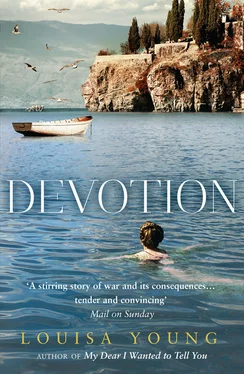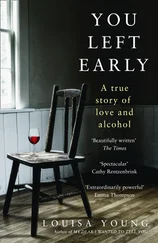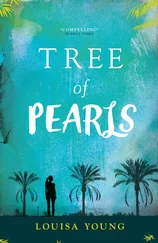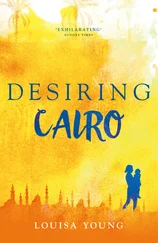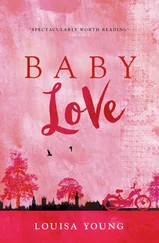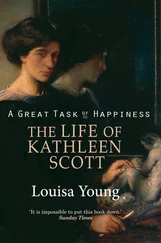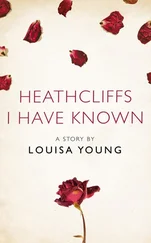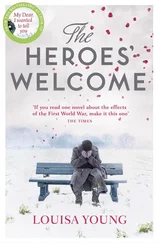They stopped at a café for cool bittersweet spremuta di limone , made from huge lumpy Sicilian lemons with leaves on their woody stalks. Kitty’s feet, swollen in her little brown sandals and speckled with mosquito bites, were hurting, so Tom and Nenna were allowed to go on alone.
He walked beside her, suddenly silent. She wasn’t chatty as he had seen her be with Kitty. He didn’t know much about girls. Some chaps had sisters, some of whom giggled. She didn’t seem to be like that.
‘ Vuoi vedere le statue parlanti? ’ she said, suddenly.
He looked blankly at her.
‘ Sì ,’ he said, and thought quickly about it in Latin: parlanti – from parlare, to talk, sounds like a – not a past participle, what’s it called – anyway, the -ing one. Talking. And did she say vedere? To see?
‘ Vedere parlanti? ’ he said.
‘ Statue parlanti ,’ she said. ‘ Vuoi vederle? ’
Statue. Statu-ay. Statue?
She was leading him: up streets, down alleys, round carts, through crowds, through a great marketplace, where onions were forgotten. They came out into a long piazza like a racetrack, with three fountains down the centre; mighty stone figures and dolphins vivid among the water and green streaks of weed. All around, Latin was written across rearing buildings. Tom recognised it from a print Riley had at home, in which it was flooded and filled with boats: Piazza Navona.
See statues talking?
He smiled and imagined how a statue might lean down to you, stone lips moving like flesh, voice creaky and dry, talking Latin. He spun round, his hands in his pockets, to look at everything.
In a small piazza beyond, Nenna stopped, and said, ‘ Ecco. Pasquino.’
It was a statue: battered and ancient, with no arms and not much in the way of legs, twisted on a sort of staircase of a plinth which was pasted all over, like the wall behind him, with printed leaflets and notices. A lot of people were bustling about, with bicycles and shopping baskets, and some men in vests and blue trousers were digging a hole in the road.
‘ La statua parlante ,’ she said.
Tom thought, It must be an oracle, like Delphi or something. There’s probably a procedure—
‘Do you ask it questions?’ he said.
She raised her eyebrows at him, and looked brave. ‘ Va be ,’ she said, and straightened her shoulders. Then, with a consciously respectful demeanour and a glance back at Tom, she went up to the statue, pushed herself up on tiptoe and called out, softly, towards Pasquino’s distant and lichened ear.
He did not answer.
‘Is that it?’ Tom said, and Nenna grinned and said ‘Yes!’
‘ Statua non parla ,’ Tom said, having been working on the Latin phrase since seven streets ago.
‘ Può darsi una risposta ,’ she said, seemingly perfectly satisfied, and Tom realised that he wasn’t that concerned about the statue, or the tradition, or the superstition, or even the answer. He wanted to know what she had asked.
‘ Quale est domandum tuum? ’ he asked, and she squinted at him.
‘ Domando tuo? ’ he said. ‘ Domanda tua? ’ He knew Italian had vowels where Latin used us or um . Couldn’t remember the gender of the word for question though.
Nenna slid her eyes sideways, and said: ‘ Segreto .’ Secret.
He wondered whether to tease her to get it out of her. Teasing, in this Latin/Italian mixture? He didn’t think he was up to it. But he wanted to know. He couldn’t let a girl keep a secret from him. It would be undignified.
They walked in silence for a while, through the hot bright streets, turning into the black shadows beneath high yellow palazzi .
Other than physical force and language, what other tools did he have? He was thinking furiously. Nenna glanced at him.
Perhaps she wants to tell me. Why else would she have taken me there?
So I must just give her another opportunity.
As they rejoined the river, he turned to her and said: ‘ Io credo che tuo secretus dire a me volunta. Se non volunta, perche me ad statuam parlante portare? ’ Which he hoped meant. ‘I believe you want to tell me your secret. If not, why take me to the talking statue?’
She laughed, of course. And then she stopped laughing, and she stopped and thought for a bit, and then she took him by the hand, which was slightly alarming, and pulled him across the road and into a church: cool, dim, empty. Glancing around, she spotted what she was after, and led him over there.
‘ La mia domanda ,’ she said, and looked at him fiercely. He nodded.
She pointed at a painting of the Madonna and child, folded her arms in the universal sign of holding a baby, and made the universal rocking-the-baby motion. ‘ Bambino Gesù ,’ she said.
He got it. ‘Baby Jesus.’
She pointed to herself. ‘ Io ,’ she said.
‘You,’ he said.
She drew her finger sharply across her throat. The universal sign of murder.
And that puzzled him.
And she made the universal hands-out palms-up shrug gesture of not knowing. And stared, waiting for his answer.
‘ La Mia domanda ,’ she said very clearly, ‘ era se io ho ammazzato il bambino Gesù .’
From a language point of view he understood perfectly. Her question had been, did she kill baby Jesus?
It was from every other point of view that he was confused – so much so that he thought he must have got it wrong. But the only alternative was did Baby Jesus kill her, which seemed even more unlikely. But then many things are unlikely.
They left the church, slipping out into the day which had grown brighter and hotter even during the few minutes they had been inside the church.
‘Why?’ he asked. ‘Your question. Tua domanda . Why?’
Nenna scuffed her shoes on the road, and did a little dance step. She wasn’t looking at him.
‘ L’ha detto un ragazzo a scuola ,’ she murmured, and would say no more.
He held on to the phrase.

Dear Heart
Oggi ti scrivo in Italiano ! I don’t know what the Italian form of Riley would be. Rilino? Reelee? No, not really – today I write to you in English as usual. But I did go shopping with Susanna in what used to be the ghetto, and I said buongiorno a lot, to all kinds of people who mostly seemed to be cousins on Aldo’s father’s side, I think. Susanna introduced me to everybody as cucina which I thought meant kitchen but apparently not. Or perhaps as well. It is all VERY Jewish – you know how in England people are only Christian when they’re in a church, but here it is a part of everything – food, music, traditional lines of work, all kinds of rules and habits, as well as synagogue. Aldo and Susanna seem to have masses of the culture but none of the religion. Interesting – and nobody seems to hold it against them at all. Aldo has a little gang of chaps he plays cards with – Signor Seta next door is his best chum I think – he has quite a saucy wife who wears her floral housecoat very tight – the men all wear hats and have bright eyes and call for each other like small boys wanting each other to come and play—
This is a short and sweet one – like you! I will be home before you know it. Ti adoro! You probably recall what that means.
She had that day taken a long walk with Aldo. Striding beside him she felt like Kitty scurrying after Tom – after all, she’d never had a brother. She smiled. He glanced back, and slowed down for her.
Читать дальше
